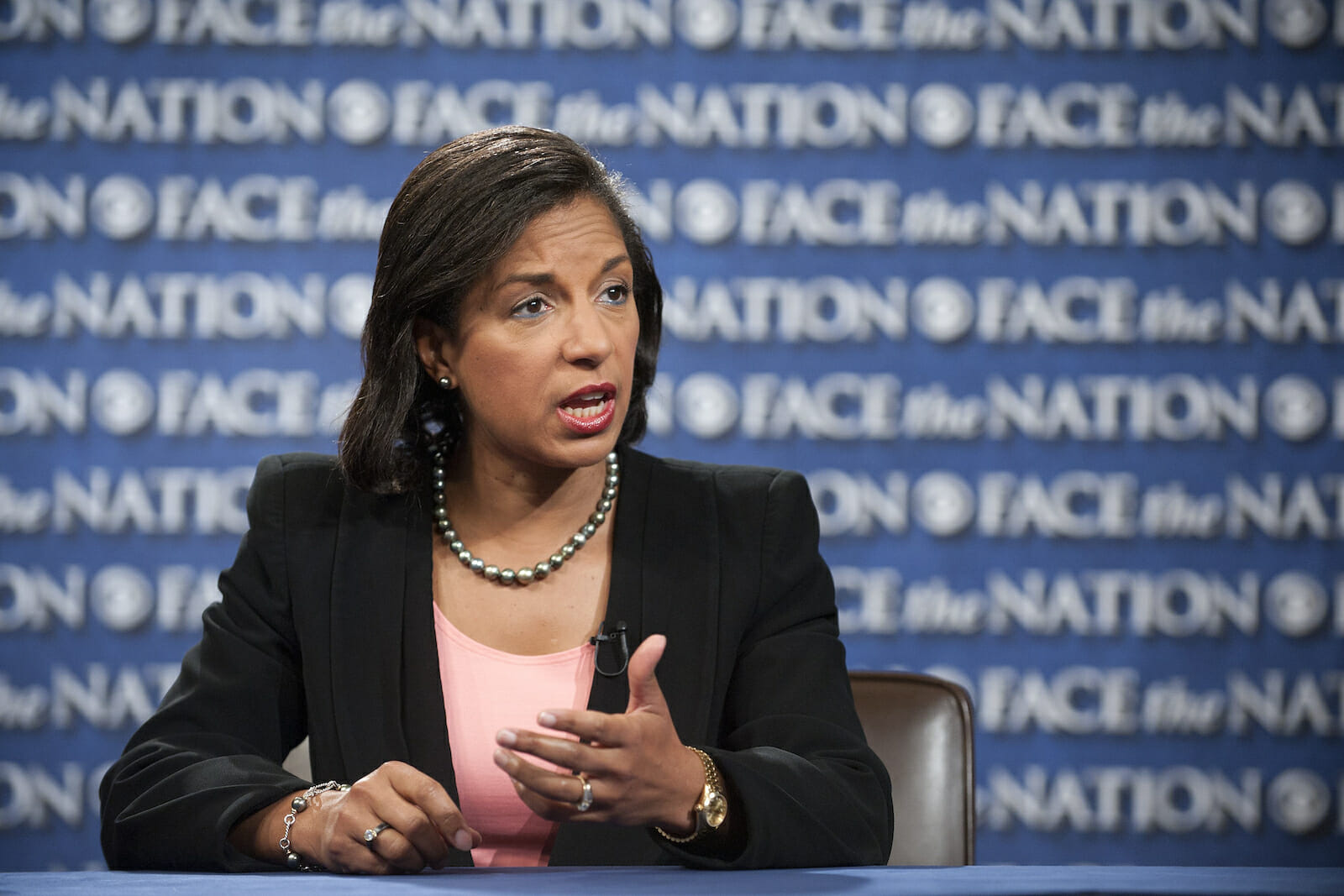
Benghazi Consulate Attacks: The Global War on Terror Continues
Senators said they were misled regarding the attacks on September 11, 2012, in which U.S. Ambassador Chris Stevens and three other Americans were killed. According to The Hill article, “Senate GOP furious newspaper got better briefing on Libya,” by Alexander Bolton on September 22, 2012, several Senators asked Secretary Hillary Clinton “How many people were at the Benghazi consulate,” and for information on the sequence of events in the attacks. Senator John McCain stated “We were told absolutely nothing,” and “If that isn’t an incredible disrespect to the members of the United States Senate, I don’t know what is. It’s an example of the disdain with which this body is held by the administration, including, I’m sorry to say, the Secretary of State.”
The frustration with the lawmakers was that the Secretary and other officials had “declined to provide any specifics, citing an ongoing investigation.” The next day, however, media sources disclosed details of the timelines and other pertinent data in the attacks. Four days later in the New York Times article, “Clinton Suggests Link to Qaeda Offshoot in Deadly Libya Attack” by Steven Lee Meyers, the Secretary stated, “there was a link between the Qaeda franchise in North Africa and the attack at the American diplomatic mission in Benghazi.” The Times referenced Libya’s President Mohamed Magariaf attributing the attacks to “Al Qaeda elements who are hiding in Libya. It was a preplanned act of terrorism directed against American citizens.”
As former U.S. ambassador to three island nations off the coast of East Africa, I had pressed for a regional security officer at the U.S. embassy in Mauritius, since none existed on my arrival in April 2002. I also pressed for bomb blast window film protection; metal bollards adjacent to building access points; metal detectors and scanners in the lobby; under vehicle search mirrors; panic hardware for exit doors; emergency lighting in all stairways; armor protection and bullet-proof glass at the embassy chancery entry, and additional contract security guards.
The embassy at one time had Marine Security Guards, but State Department budget cuts eliminated that protection. We pressed the Diplomatic Security Service (DSS) for increased surveillance detection (SD) teams to regularly assess conditions around the embassy, diplomatic residences, and at event destinations.
I was also adamant that we receive daily intelligence updates, from our agencies in the region. Although we were in a minimum threat environment, we did have a number of demonstrations, and several bomb threats. After thirty years of attacks on U.S. embassies around the world, security standards should have been established, as to the risks, and provide a safe environment to carry out our diplomatic relations in the host country.
It would appear that the Diplomatic Security Service failed to provide adequate protection for Ambassador Chris Stevens, and the others, who were in a consulate that did not meet security standards for such a conflicted area—where attacks against Westerners were common. Surveillance detection teams should have determined if such a trip to Benghazi was risky, especially on the eleventh anniversary of al-Qaeda’s horrific attacks against the United States. Losing four American diplomats could have been avoided.
I was in Bamako, Mali on that fateful day, having just returned from a refugee camp in the border town of Djibo, in Burkina Faso, where fifteen thousand Malian refugees were living in temporary tents. Almost 500,000 had fled to similar camps in neighboring countries. In my discussions with government leaders, it was noted that Tuareg rebels and Ansar Dine Islamists in northern Mali had become affiliated with Al-Qaeda in the Islamic Maghreb (AQIM) from Algeria, which has tentacles reaching across the Sahel, and into Libya. The attacks in Benghazi had all the signs of AQIM’s involvement. Other radical Islamists embedded in northern Mali and beyond included Boko Haram from Nigeria, al-Shabaab from Somalia, and Afghan and Pakistani insurgents. The government leaders were concerned that the Islamists now controlled over half the country, an area the size of France.
In a June 7, 2012 Reuters article, President Mahamadou Issoufou of Niger noted, “That Afghan and Pakistani jihadis were training recruits for Islamist groups in northern Mali, the latest sign it is slipping into terrorist hands,” and it is “necessity for a U. N. Security Council Resolution on the Mali situation to allow the use of force to restore integrity of Mali’s territory.”
The Obama Administration had characterized the U.S. consulate attacks, at the time as spontaneous, and not preplanned by terrorists. There also was no mention of the on-going Global War on Terror (GWOT) – with the United States being the primary target. No matter how many al-Qaeda leaders are killed, the GWOT will continue indefinitely. Al-Qaeda and associated Islamist groups are bent on establishing a caliphate under Sharia, the brutal Islamic law.
Mali had become destabilized as a result of the Arab Spring. After the downfall of Muammar Gadhafi, large caches of weapons fell into the hands of Tuareg rebels and radical Islamists. On July 5, 2012, the United Nations Security Council (UNSC) passed Resolution 2056, to address the instability in northern Mali. However, the Resolution fell short of backing a military intervention. Instead, the UNSC asked for further studies on the situation, insisted the Mali government negotiate with the Islamists, and that elections were to be a priority. Meanwhile, the atrocities by the well-armed Islamists continued unabated, forcing Malians to flee the country. The Tuareg and Arab village elders I met with in the Mintao Refugee Camp felt abandoned. That they were victims of the Islamists who have overrun their villages and towns, and little is being done to take back control of the region.
The Malian government leaders expressed their desperate need of arms for the Malian military, so they can stabilize the northern region. They noted there was a ship with the needed military supplies being held at the Port of Conakry in Guinea. President Traore had personally written a request, pleading for the ship’s release. The Economic Community of West African States (ECOWAS) was willing to send 3,000 troops to support Mali if the UN would authorize the action. In my discussion with Foreign Minister Tieman Coulibaly, Minister of Administration Moussa Sinko, and Defense Minister Yamoussa Camara, they were in concert on the way forward. The election process had to be a priority, but at the same time, they needed ECOWAS military support of the Malian troops, to subdue the radical Islamists.
“There is an urgency to act to end the suffering of the people of Mali and to prevent a similar situation that would be even more complicated in the Sahel and the rest of the world,” stated Malian Prime Minister Cheick Modibo Diarra to the UN General Assembly. In the same Reuters article of September 27, 2012 “U.N. members divided over response to Mali crisis,” Niger’s Foreign Minister Mohammed Bazoum told UN members “that only an armed intervention supported by friendly powers could eradicate insecurity in the region.” Even after similar remarks from other country leaders, Secretary Clinton still did not support military action, stating “In the end, only a democratically elected government will have the legitimacy to achieve a negotiated political settlement in northern Mali, end the rebellion and restore the rule of law.” The Reuters article further noted that African Union Security Commissioner Ramtane Lamamra said that Mali’s Transitional Government was capable of dealing with the crisis, but needed international backing. President Hollande of France noted, “How can we organize elections when northern Mali is occupied by terrorist movements that don’t apply democracy.” UN Secretary-General Ban Ki-moon stated, “The United Nations was developing a strategy on the Sahel that would look as a whole at issues including security, response to large-scale crises, and the promotion of democratic governance.”
The News24 article on September 26, 2012 “Fighters ready for battle in north Mali” noted that Islamists have infiltrated Nigeria, Togo, Benin, Niger, Guinea, Senegal, Sierra Leone, and Ivory Coast. Interviewing an Islamist, he stated, they were no longer divided into separate movements. “We are all mujahedeen,” he went on to say; that they are ready to battle the ECOWAS troops.
Since late January, over eighty Malian soldiers have been slaughtered by Islamists, hundreds of people have lost their lives, many others have been subjected to inhumane atrocities, a 13th-century mosque was severely damaged, and 15th-century artifacts and scriptures have been destroyed. Radical Islamists have overrun a large area of Mali, where Afghan and Pakistani insurgents are now also embedded. The attacks against Americans in Benghazi were undertaken by affiliates of AQIM, who have a dominant presence in Mali.
Meanwhile, the U.S. and UNSC insist that elections be held “first” before action can be taken against the Islamists. Malians are caught in the cross-fire of dangerous Islamists, who are spreading across the Sahel. Doling out humanitarian aid to the Malian Diaspora is not a solution. We need to press the UNSC for immediate action to stabilize Mali. Sending in ECOWAS troops to underpin the Malian military, with logistical support from the U.S. Africa Command (AFRICOM) and European Union (EU), is a good start.

